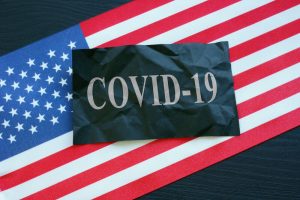
On November 12, 2021, Tennessee Governor Bill Lee signed a new law addressing several issues related to the response to the 2019 Novel Coronavirus, SARS-CoV-2, coronavirus disease (COVID-19), and COVID-19 vaccinations. The new law became effective immediately upon being signed by Gov. Lee on November 12, 2021. Among other things, the new law significantly curtails the government’s ability to impose mask mandates and prohibits the government and most private businesses from compelling individuals from providing proof of vaccination if the person objects to receiving a COVID-19 vaccine for any reason. This article discusses some of the important changes the new law brings to public policy surrounding the response to the COVID-19 pandemic throughout Tennessee.
At the outset, some of the most significant changes brought about by the new law concern restrictions on the ability of government and private businesses to require individuals to provide proof of having received a COVID-19 vaccination. Specifically, the new law states that “[a] private business, governmental entity, school, or local education agency shall not compel or otherwise take an adverse action against a person to compel the person to provide proof of vaccination if the person objects to receiving a COVID-19 vaccine for any reason.”¹ Importantly, the new law contains a broad definition of “private business,” and includes individuals, sole proprietorships, corporations, limited liability companies, partnerships, trusts, associations, and non-profit entities.² In addition, the new law contains a broad definition of “adverse action,” and includes discrimination “against a person by denying the person employment, privileges, credit, insurance, access, products, services, or other benefits.”³ As a result, under the new law, most private businesses and governmental entities in Tennessee are prohibited from requiring any individual from providing proof of vaccination in the event the person objects to receiving a COVID-19 vaccine for any reason, and this prohibition is applicable to employees, customers, or just about any individual who accesses products or services of a private business or covered governmental entity.
Nevertheless, the new law does contain several important exceptions to the general prohibition of requiring proof of having received a COVID-19 vaccination. The new law does not prevent the implementation of COVID-19 vaccine mandates for Medicare and Medicaid providers, or assisted-care living facilities, federal government contractors or subcontractors, schools, or employers that submit notice in writing to the comptroller of the treasury that compliance with the new law would result in a loss of federal funding.4 Moreover, the new law does not prohibit “a place of entertainment” in Tennessee from requiring proof of a negative COVID-19 test in order to gain admission, or to allow a person to voluntarily provide proof of vaccination or proof of COVID-19 antibodies in lieu of presenting a negative COVID-19 test in order to gain admission to a “place of entertainment.”5
 Cole Law Group Blog
Cole Law Group Blog















 As part of the response to the 2019 Novel Coronavirus (COVID-19), on April 22, 2020, the President issued a Proclamation Suspending Entry of Immigrants Who Present Risk to the U.S. Labor Market During the Economic Recovery Following the COVID-19 Outbreak (the “Proclamation”). The Proclamation, which is effective April 23, 2020, for a period of sixty (60) days, does significantly impact immigration for many individuals currently outside of the United States and seeking entry into the country on a permanent basis. Nevertheless, the Proclamation also has many exceptions, and it appears likely that the Proclamation will not ultimately prevent the majority of individuals seeking lawful permanent residency in the United States from obtaining green cards.
As part of the response to the 2019 Novel Coronavirus (COVID-19), on April 22, 2020, the President issued a Proclamation Suspending Entry of Immigrants Who Present Risk to the U.S. Labor Market During the Economic Recovery Following the COVID-19 Outbreak (the “Proclamation”). The Proclamation, which is effective April 23, 2020, for a period of sixty (60) days, does significantly impact immigration for many individuals currently outside of the United States and seeking entry into the country on a permanent basis. Nevertheless, the Proclamation also has many exceptions, and it appears likely that the Proclamation will not ultimately prevent the majority of individuals seeking lawful permanent residency in the United States from obtaining green cards.